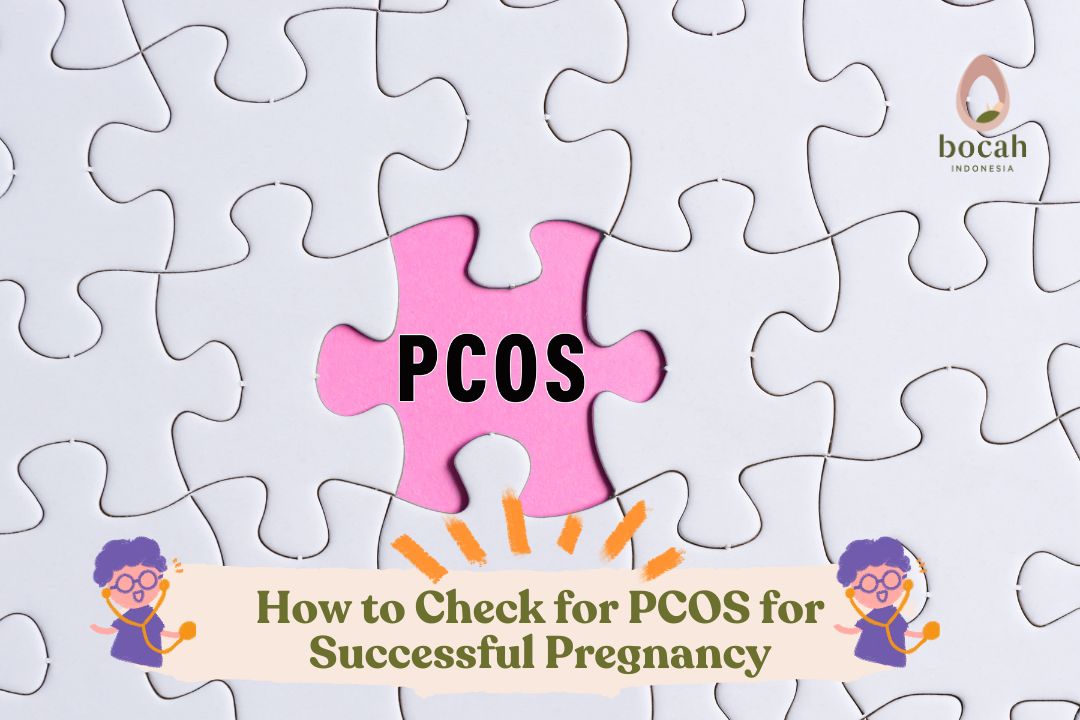How to Check for PCOS for Successful Pregnancy

Polycystic Ovary Syndrome (PCOS) can be diagnosed in several ways, including physical examination, pelvic examination, ultrasound, and blood tests.
Women who experience Polycystic Ovary Syndrome (PCOS) are typically of reproductive age. Women with PCOS often have irregular menstrual cycles.
PCOS causes an excess of androgen hormones, commonly referred to as male hormones. This condition can lead to excessive hair growth in certain areas, acne, and even baldness.
So, how do you check for PCOS?
PCOS Diagnosis
When a woman has PCOS, the reproductive hormones in her body become imbalanced. This disrupts the menstrual cycle, making it irregular. Typically, women with PCOS experience irregular or absent periods.
Tanya Mincah tentang Promil?
Mothers need to be careful because PCOS can make it difficult to conceive. Therefore, to increase the chances of successful pregnancy, mothers need to address PCOS with treatments recommended by a doctor.
It’s important to note that self-diagnosis should be avoided, and a doctor’s examination is necessary. Here are some methods used to diagnose PCOS.
Medical history and physical examination
One of the methods to check for PCOS is a physical examination or medical history. The doctor will take a medical history by asking about symptoms, medications taken, and any medical conditions experienced.
In addition, the doctor may also inquire about menstrual cycles and changes in weight. Physical examinations such as excessive hair growth, acne, and insulin resistance will also be performed.
Pelvic examination
This examination is performed to detect PCOS early. Through a pelvic examination, the doctor will examine the growth, masses, and changes in reproductive organs, including the vagina, cervix, uterus, fallopian tubes, and ovaries.
Ultrasound (USG)
Women with Polycystic Ovary Syndrome can also be diagnosed through ultrasonography (USG). There are two types of USG recommended by doctors, namely transvaginal USG and abdominal USG.
If you undergo transvaginal USG, the doctor will insert an ultrasound probe through the vagina. This type of USG is often chosen by doctors to precisely identify small cysts in PCOS patients.
As for abdominal USG, this examination is done using the ultrasound probe on the upper abdomen.
Blood tests
This type of test is performed to measure the level of anti-mullerian hormone (AMH) in PCOS patients. The anti-mullerian hormone (AMH) is a hormone that plays a role in producing a woman’s egg cells.
AMH testing is important to determine the number of egg cells or ovarian reserves. If a woman has a high AMH level, it indicates a large number of egg cells and ovarian reserves. Conversely, if a woman has a low AMH level, it means fewer egg cells and ovarian reserves.
However, according to Dr. Shanty Olivia F.J, Sp.OG, Supbsp. FER, a specialist obstetrician and gynecologist consultant in fertility at Bocah Indonesia, women with low AMH levels can still have a chance of getting pregnant.
“For those with low AMH levels, the short answer is that they can still get pregnant. So, AMH describes the quantity or ovarian reserve of eggs in the ovaries, not the quality of the eggs. To get pregnant, good egg quality is needed. So, for those with low AMH, don’t worry, you can still get pregnant as long as the egg quality is good,” says Dr. Shanty.
In addition to measuring AMH levels in a woman’s body, blood tests are also done to determine blood sugar and cholesterol levels.
Treatment for Polycystic Ovary Syndrome (PCOS)
If you have PCOS, don’t worry, this condition can be managed based on symptoms and causes. Some ways to address PCOS include:
Lifestyle changes for better health
One way for PCOS patients to address this condition is by adopting a healthier lifestyle. For example, achieving and maintaining an ideal body weight. Women with PCOS tend to have excess body weight, although even thin women can experience this condition.
Additionally, follow a healthy diet and consume nutritionally balanced foods to enhance the effectiveness of medication and improve fertility chances.
Taking medications
Another way to address PCOS is by taking medications recommended by a doctor to regulate menstrual cycles, such as birth control pills. Birth control pills containing estrogen and progesterone can suppress androgen hormone production in the body.
Other types of medications recommended by doctors include letrozole, metformin, and clomifene. The choice of medications depends on each patient’s condition and the doctor’s examination.
So, there you have it. It’s important to diagnose PCOS early so you can address its causes and improve your chances of getting pregnant. Remember, PCOS is also one of the causes of fertility disorders, so be sure to consult a doctor soon!
Source:
- National Health Service. https://www.nhs.uk/conditions/polycystic-ovary-syndrome-pcos/diagnosis/.
- Eunice Kennedy Shriver National Institute of Child Health and Human Development. How do health care providers diagnose PCOS?
- Morreale, H.F.E. (2018). Polycystic ovary syndrome: definition, aetiology, diagnosis and treatment. Nat Rev Endocrinol. 2018 May;14(5):270-284.








